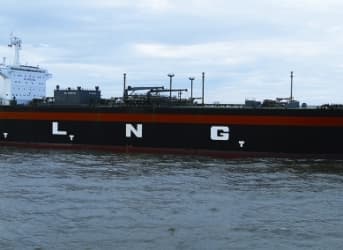The world focused its attention recently on Cheniere and the United States’ first liquid natural gas export. But the more telling story actually lies behind the scenes and stems from the state-controlled Russian corporation Gazprom.
Over the course of the past six months, the company has begun to experiment with what it deems to be a new pricing strategy driven by conventional market forces, in which the company auctions off natural gas in a competitive marketplace. Gazprom is effectively deviating from their standard pricing convention, whereby the commodity’s price is indexed or linked to oil via a long-term contract. While it is true that this week’s announcement focuses only on a small sub-sector of the company’s clientele — the Baltic States of Lithuania and Latvia — the geopolitical implications are profound.
Impact of the shale boom
Across commodities, the influence of the shale boom has been felt from Riyadh to Moscow, and things aren’t changing any time soon. The United States’ shale boom, coupled with the output of other countries such as Australia, has afforded the United States and other countries the opportunity to now source their natural gas from a more competitive marketplace. Related: Seeing Beyond Sentiment In Oil’s Latest Rally
As a result of this increasingly competitive landscape, global prices have converged, as a consumer’s location is no longer as important in dictating the price they receive as it once was.
Ultimately, the influx of producers from the United States and Australia has suppressed the arbitrage opportunities that previously existed based on geography. Countries in the Asia-Pacific region and proximate to Russia are paying a premium.
(Click to enlarge)
The tightening of global prices over the past year and a projection through December 2018. Source: Timera Energy
Outside of the overall price convergence, the latest moves by Gazprom are one of the first signs that the geopolitical implications of gas production increases are coming to fruition. In a competitive market, simple economics suggest that given the precipitous drop in oil prices and their linkage to natural gas, any rational producer would look for ways to support revenue levels, including price changes. But the Eastern European natural gas market is quite far from competitive, and it is no secret that the Russian government has historically been able to leverage their position as a key, if not the only, supplier of natural gas to these countries to maintain or demand a high price. Related: Have Oil Markets Grown Numb To Supply Disruptions?
The recent news highlighting the change in pricing structure, despite being labeled as business as usual by company leadership, suggests that the Russian enterprise is looking for alternative ways to claw back market share. It can no longer strong-arm its consumers into an inequitable deal. Outside of the U.S., many other countries and their respective corporations, such as Norway’s Statoil, are beginning to infringe upon what had always been Russian dominated markets as well.
In a world mired in geopolitical conflicts, European leaders have been looking for ways to reduce their dependency on Russian gas. Consequently, the auctions suggest that the pressure is finally being felt in Moscow.
Another factor in Gazprom’s new strategy is the EU’s pending antitrust concerns where the EU is effectively claiming price gouging against the company. In shifting to a blended pricing strategy of long term contracts indexed to oil and a market-based auction, the company is employing a win-win strategy that not only appeases the EU but also backs the strategic effort to regain lost market share and respective geopolitical influence.
What’s next for Gazprom and Russia?
As the rise of new and enhanced production capabilities in the natural gas market continues, energy-producing countries such as Russia and state-owned enterprises such as Gazprom need to adapt a more strategic focus. Marketplace actions, which suggest these countries and their corporations are revisiting their strategies, are a testament to the impact of the global supply increase. They also speak to the potential efficacy of these industries and their players as a foreign policy tool. Related: What Happens When Oil Hits $50?
Furthermore, simply because Russia is opening itself up to a more market-oriented style of pricing doesn’t mean that the geopolitical influence it has over Europe with regard to natural resources is going away any time soon. However, it does mean that the state-owned companies such as Gazprom have begun to feel the pressure. They may continue to act in ways consistent with preserving the status quo and maintaining market share.
Studies suggest that Russia, as a low cost producer, may act in a fashion similar to OPEC and apply pressure to other market participants by using price to its advantage. This is an indeterminate path at best.
The impact of increases in commodities production capacity and output across the world has forced the hands of the leading market players, and natural gas is no different. In regions of historic contention, this supply impact is beginning to reshape the relevant power dynamics that govern energy resources. It may ultimately serve to change regional geopolitical alliances as well.
By Eric Simmons via Globalrisksinsights.com
More Top Reads From Oilprice.com:
- China’s Oil Majors See Production In Biggest Fields Shrink
- New Wind Turbines Taller Than The Empire State Building
- The Current Oil Price Rally Is Reaching Its Limits



















